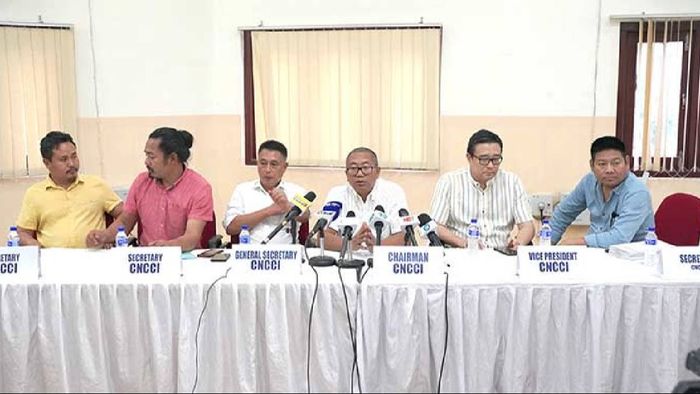Confederation of Nagaland Chamber of Commerce and Industry demands CBI probe into alleged rice scam
The demand for a CBI probe stems from mounting reports of rice polishing and packaging within Nagaland's public distribution system (PDS), as highlighted by local media and complaints from the business community.

- Feb 29, 2024,
- Updated Feb 29, 2024, 10:23 AM IST
The Confederation of Nagaland Chamber of Commerce and Industry (CNCCI) has raised serious concerns over the availability of cheap rice from unidentified sources in Nagaland, coupled with suspicions surrounding the opaque procedures governing contracts for rice transport and handling. The CNCCI has now called for a comprehensive investigation by the Central Bureau of Investigation (CBI) to unearth the truth behind what it perceives as a potential scam.
The demand for a CBI probe stems from mounting reports of rice polishing and packaging within Nagaland's public distribution system (PDS), as highlighted by local media and complaints from the business community. Expressing dismay over the situation, the CNCCI, in a press release, announced its intent to delve deeper into the matter after taking cognizance of the alarming developments.
One of the key grievances raised by the trade body pertains to the non-disbursement of rice allocations to designated transporters despite funds being deposited with the Food & Civil Supplies (F&CS) Department. The CNCCI alleges discrepancies in the department's claims of having refunded the money to transporters while asserting that evidence suggests otherwise.
Moreover, the CNCCI raises questions regarding the whereabouts of the allocated rice, hinting at a potential diversion of essential supplies meant for the poorest sections of Nagaland. It speculates that rice intended for distribution through PDS channels might have been diverted to unauthorized polishing and repackaging units, ultimately finding its way into the retail market.
The trade body also expressed concern over the apparent disparity in rice pricing, noting a decline in rice imports juxtaposed with an increase in consumption. This has led to a monopolistic situation in the rice market, raising ethical concerns about subsidized rice intended for vulnerable beneficiaries being sold at inflated prices.
In response to these alarming revelations, the CNCCI has issued a stern warning to any business entity found engaging in the unauthorized sale, polishing, or packaging of PDS rice, vowing to take stringent action against offenders. Additionally, it has urged all district chambers of commerce to remain vigilant against such unethical practices.
Furthermore, the CNCCI has criticized the lack of transparency in the tendering process for schemes aimed at providing subsidized rice to beneficiaries. It has called for an overhaul of the tendering process to ensure fairness and equal opportunity, particularly for unemployed youth seeking to participate in the scheme.